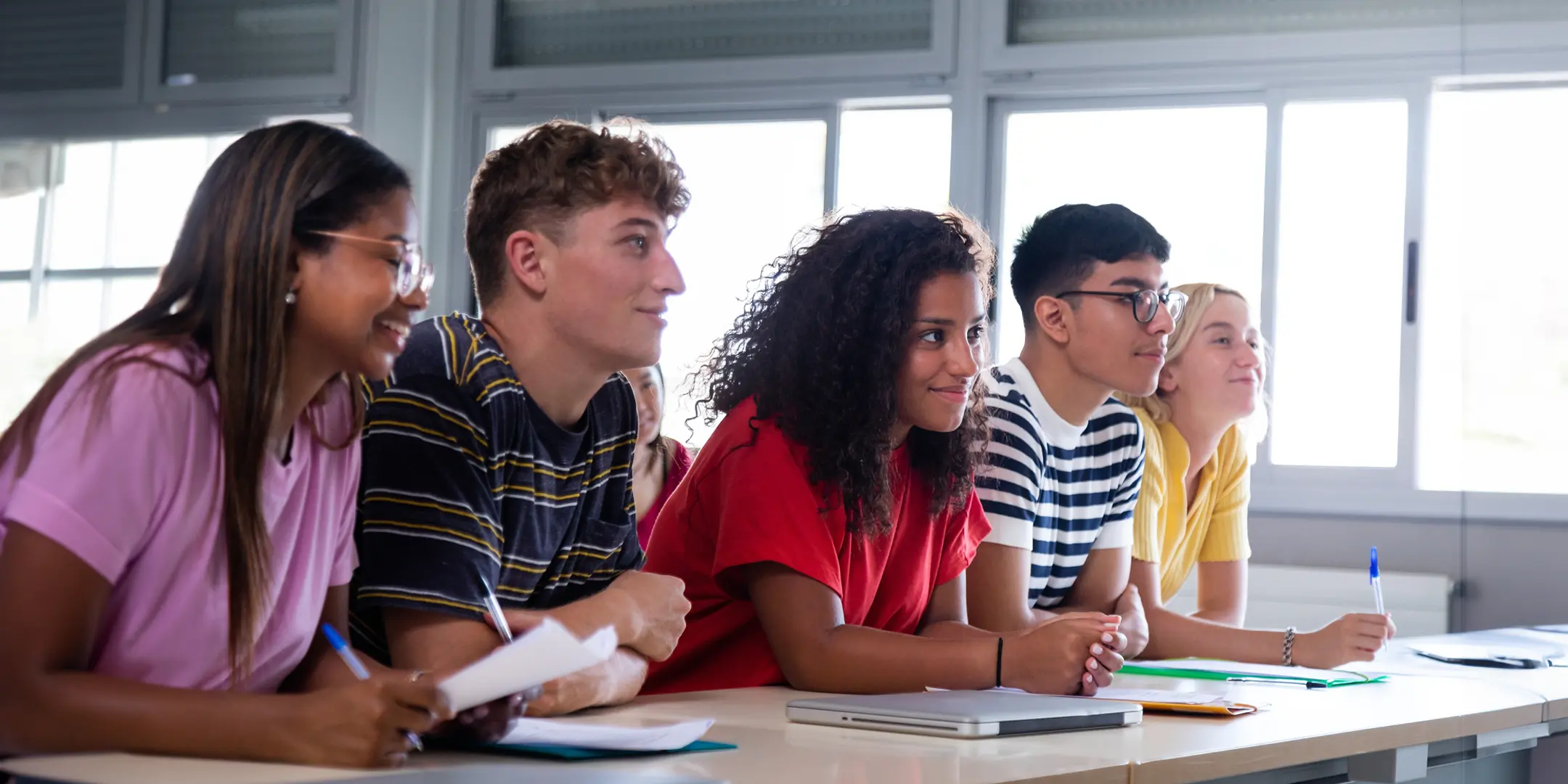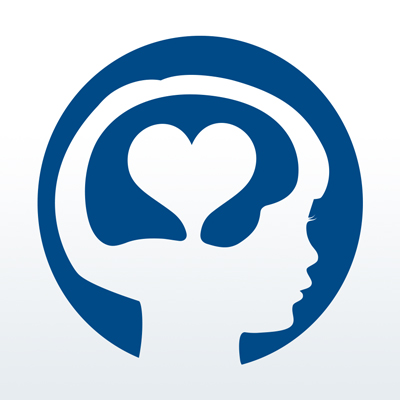Conscious Discipline’s reach has spanned world-wide for close to 30 years. With evidence-based, trauma-responsive practices, our clients have reported as much as a 45% decrease in negative behavioral referrals and up to a 50% increase in academic achievement! These numbers are due large in part to our incredibly skilled and dedicated educators who implement Conscious Discipline’s practices within their classrooms. Kelly Clouse, a teacher at William Henry Harrison High School, is one of them.
Here, Kelly shares a personal story of the transformational power of Conscious Discipline in an essential skills high school classroom setting.
______________________________________________________________________
In my essential skills high school classroom, where scholars with significant mental and physical disabilities learn and grow, Conscious Discipline principles are seamlessly woven not only into our daily routine, but also into our entire school year. Although we may not have always labeled them as such, the more we implement Conscious Discipline’s practices, the more we realize how these principles naturally align with the structure and nature of our program. Intentional practices throughout the year help to build a strong School Family within the classroom and school building while also extending that sense of community to caregivers. Our day-to-day activities create a supportive and inclusive environment that helps to ensure that all scholars remain engaged and regulated. This approach not only benefits our scholars (helping them stay composed and focused) but also positively impacts the teachers and classroom staff by promoting a cohesive and nurturing environment.
Building Our School Family
Building a School Family involves fostering connections within the classroom, in and around the school, and with parents and caregivers. One of the first steps to building our School Family is to introduce myself by hosting an 8th-grade parent night. This night is a large steppingstone to building a foundation that ensures caregivers feel included and informed about the transition their child will make from middle to high school. To promote transparency and safety in a world that doesn’t always feel that way with a child with disabilities, we provide the following:
- Details concerning our open-door policy, welcoming caregivers to visit the classroom anytime.
- Valuable, comprehensive information about our essential skills program and the unique opportunities we offer.
- Reassurance: we simply aim to make caregivers feel comfortable, to ease the stress that this significant transition can bring, and to open the door to build relationships with them from the onset.
We also continue building relationships with caregivers throughout the school year through weekly newsletters. Weekly newsletters provide caregivers with the opportunity to stay connected in their child’s education process. They also build opportunities for scholars and parents to discuss the activities being completed in class while at home. In addition, they are a wonderful way to include caregivers and invite them to participate in events in the classroom or in the school.
While trying to bridge the gap between school and home, we also ask for reciprocal participation from caregivers. We want scholars to be able to share what is important to them with their school community. This can include activities with friends or family at home or in their community. Therefore, we ask caregivers to share, or give scholars the opportunity to share, photos of the events that occur outside of the school day. The scholars then share these with their peers during classroom meetings, creating a sense of family for everyone involved.
Building a community within your school building is difficult when you teach and learn in a self-contained environment. It takes a conscious effort to build a school community for scholars in these settings. Through thoughtful social experiences and hands-on learning, we have been able to achieve such a community.
One initiative includes a coffee delivery vocational experience that is a highlight for many of the scholars. They prepare and deliver drinks to staff around the school, learning valuable social communication, increasing connection, and exercising vocational and functional academic skills. As scholars navigate the school, they interact with peers and staff, rooting their sense of belonging and purpose and building meaningful connections.
Recognizing and appreciating the efforts of others in the school community is a second initiative and integral part of our program. Students create ways to notice and acknowledge people in their school community who have been important or helpful, including bus drivers, cafeteria workers, teachers and administrators. This could be a heart-felt card, or small token of appreciation. Not only does this provide additional learning opportunities to practice communication and executive functioning skills, but it cultivates a sense of gratitude and connection.
On an intimate scale, we built a school community through adding our help team. The help team is made up of five individuals who are invested in the wellness of our scholars and staff and who are willing to commit the time to helping. This team supports the teacher by covering the class to provide a weekly opportunity for planning and preparation. These individuals also provide breaks, tap ins and outs, and assistance during or after a crisis. The help team forms relationships with staff and scholars in the classroom by showing up, getting to know each other, and participating in the activity with the class. This creates a school community for the scholars and reinforces a sense of belonging and support for the teacher and classroom staff.
A Day in the Life: Interactive and Inclusive Learning
Our classroom is built around interactive activities that cater to various learning styles. We use visuals, auditory cues, sensory activities, kinesthetic learning via physical activities and hands-on learning to make lessons engaging, meaningful and accessible. Routine and structure are also vital. Our schedule remains consistent, providing familiarity and reducing anxiety. Flexibility is also used to adapt to the scholars’ needs, ensuring that everyone feels secure and supported.
We begin each day together with a daily meeting. Typically, this time starts with a question of the day or prompt to get the students prepared for the daily schedule. Although it is a structured time, it is also open-ended and guided by the students, their experiences, and responses to the questions. It’s become a cherished time where scholars are encouraged to share personal stories and photos and to be themselves. This not only builds their confidence and ensures that every student feels heard and valued, but it also sets a positive tone for the day and strengthens our classroom community. The morning meeting is where we get to see the Powers of Attention , and Unity in action.
Physical activities are also integrated into our daily routine to help scholars regulate their energy and emotions to move more easily from a Survival or Emotional Brain State to an Executive State. Activities like fitness bingo, walking routines, gym time, yoga, and dancing are not only fun, but also crucial for maintaining balance and focus. These activities are mindfully scheduled into our day and are based on student need but can also be quickly added when students are dysregulated.
In addition, each week we like to incorporate some type of activity that incorporates sensory play. These activities are related to a topic or unit that we are learning in class such as a cooking lesson, where students engage in tactile experiences by mixing ingredients, feeling different textures and tasting new flavors. Sensory play can also involve art projects that use various materials like sand, water, or finger paint, allowing students to explore their creativity while engaging their senses. These activities not only reinforce the academic concepts they are working on but provide crucial sensory input that helps students maintain a state of composure and ability to focus.
When planning academic lessons throughout the school year and each week, the main focus is to try and implement opportunities for hands-on learning. While it is necessary to complete some academic tasks through seatwork, the idea is to combine those tasks with additional opportunities that encourage learning and problem-solving. For example, when learning about money, we help our scholars make real-world connections by incorporating a classroom economy system. Not only does this enhance their understanding, but it also provides opportunities for connection and regulation through movement (“going to the classroom bank”) and sensory input (working with money manipulatives). Using visuals on the ViewSonic board help guide students through the process as well and provide a model for the seat work portion of the activity. Students are encouraged to work independently and are prompted with directions and guidance by classroom staff who are visibly present and walking around the room.
I believe in empowering my scholars by encouraging autonomy and ownership over their own learning. They contribute ideas for activities and lessons or make choices when various activities are provided as options. We also plan several events together that are meaningful to the students, which boosts their confidence and makes them feel empowered.
Keeping scholars regulated throughout the day is crucial for a successful learning environment. We provide additional supports like swings, tennis balls, tumble chairs, rocking chairs, and various other sensory tools tailored to individual needs. If a student exhibits the capacity for self-regulation, we allow them the freedom to do so unless it becomes harmful, in which case we guide them towards safer alternatives. If a student is unable to self-regulate, we have the necessary support tools and equipment to offer, while directing, prompting and helping them during that time.
Impact on Students and Staff
Conscious Discipline practices have profoundly impacted scholars and staff in our classroom. For scholars, these practices provide a safe, structured environment where they can thrive, feel valued, and build academic, executive function and life skills. For teachers and staff, the supportive, collaborative atmosphere reduces stress and enhances job satisfaction, allowing us to focus on what we do best – educating and nurturing our scholars.
Conscious Discipline principles are an important strategy and a natural way of providing education to our students. It helps create a loving, supportive, and structured environment where every student can shine, and every staff member feels valued and supported.
___________________________________________________________________________
If you’re new to Conscious Discipline and would like to know more about how the implementation of its practices could positively impact your own life and work, here are a few great resources to start:
Resources
- The Four Components of Conscious Discipline
- How Does Conscious Discipline Compare with Other Programs?
- Ten Reasons to Shift to Conscious Discipline
- How to Transform Your School with Conscious Discipline
There’s nothing like meeting up with your Conscious Discipline Family in person. Check out our events page often for the latest inspirational workshops, institutes, and conferences near you!
Have a question? You can now connect with live support, available on weekdays from 9 am to 5 pm. ET. Click on the blue and white thought bubble icon on the bottom right-hand side of the page to connect to a team that is waiting to help.
Sometimes questions can’t wait for working hours. From 5 pm to 9 am. ET, you can access a custom Conscious Discipline chatbot designed to assist you with our most common support requests. If your question requires more personal support, select the “Contact” button to send your inquiry to the appropriate team and someone will get back to you.
There is so much good just around the corner for Conscious Discipline ! To keep up with our latest news follow us on…
Facebook , Instagram, Threads , TikTok, Pinterest, LinkedIn , YouTube , X
Upcoming Events
- Adult Self-Regulation: Supporting Neurodivergent Children: Education Event in Orlando, FL
- Anger and Rage: Planning Our Response: Education Event in Orlando, FL
- Conscious Discipline Institute in Madison, WI: Summer Educator Event
- Conscious Discipline Institute in Las Vegas, NV: Summer Educator Event
- Conscious Discipline Institute in Phoenix, AZ: Summer Educator Event
- Conscious Discipline Institute: Birth to Five Years: Summer Educator Event in Chicago, IL




